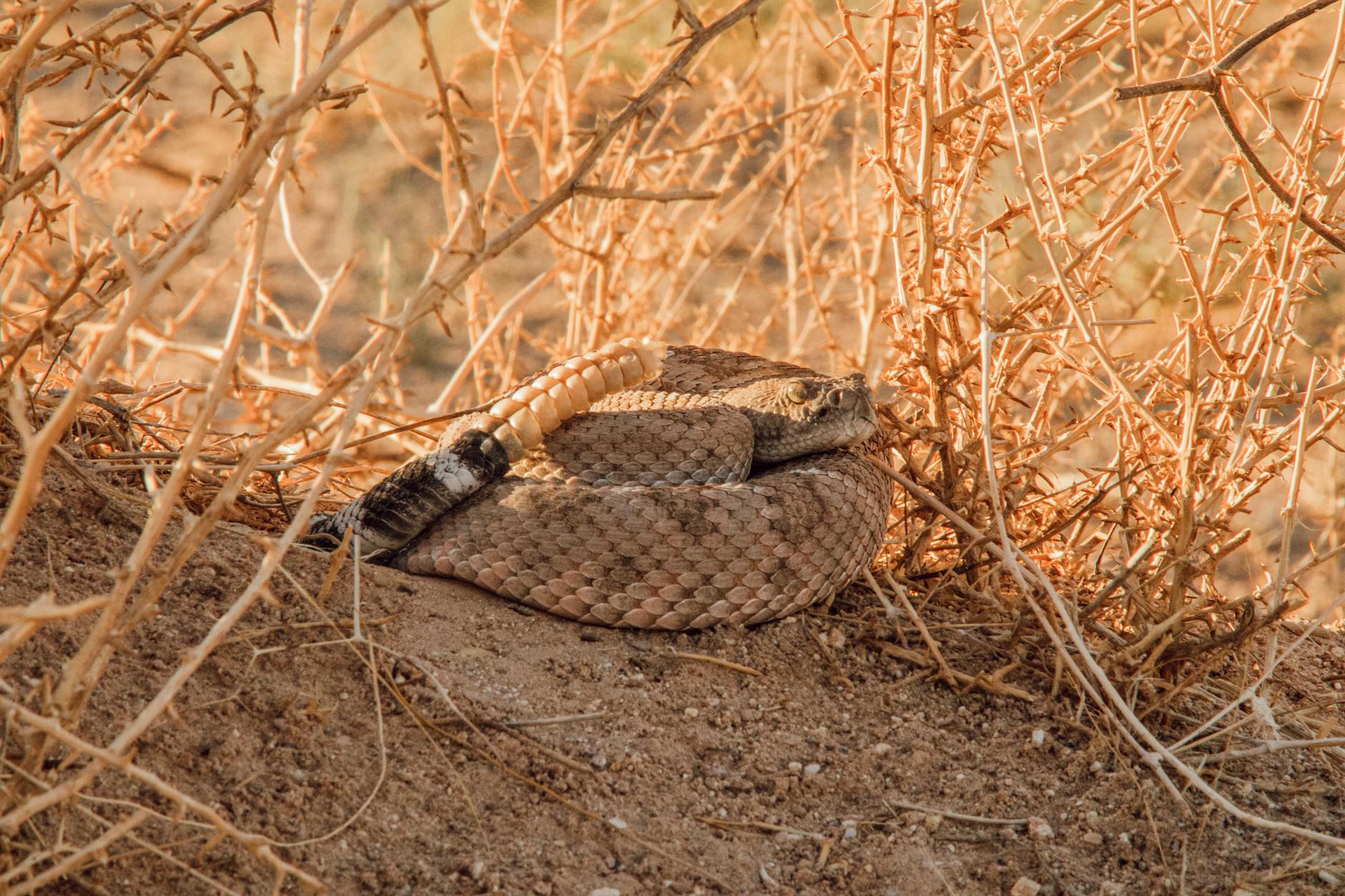Veterinary Experts Do Not Recommend the Rattlesnake Vaccine
My mission is to help you have a healthier dog and breeders to raise healthier Llewellin Setters puppies through educational content based on over twenty years raising, training, and breeding Llewellin Setters. To help support these efforts, this page may contain affiliate links. I may earn a small commission for qualifying purchases at no cost to you.

As the upland hunting season openers are upon us and many will be hunting the western states, we start to wonder if we should have the Rattlesnake vaccine.
A common question posed to veterinarians is, “How can I protect my dog from snakebites?” Some vets might suggest the rattlesnake vaccine, marketed as a preventative measure to “buy time” before reaching an emergency clinic or to reduce the effects of venom. However, evidence supporting the efficacy of this vaccine is lacking, and some research indicates it may even pose risks.
What Is the Rattlesnake Vaccine?
The rattlesnake vaccine uses inactivated western diamondback rattlesnake (Crotalus atrox) venom. According to its manufacturers, the vaccine “helps create immunity to protect your dog against the effects of venom.” Despite these claims, peer-reviewed studies and veterinary organizations highlight significant concerns:
- Lack of efficacy: There is no published evidence proving the vaccine’s effectiveness in dogs.
- Adverse reactions: Cases of anaphylaxis and other negative side effects have been reported.
- Limited protection: The vaccine is designed for western diamondback rattlesnake venom, but manufacturers claim cross-protection against other species without supporting data.
Insights from the American Animal Hospital Association (AAHA)
The AAHA has addressed these concerns directly. In their guidelines, they caution veterinarians about the lack of evidence for the vaccine’s effectiveness:
- No proven benefits: Studies show no reduction in morbidity or mortality in vaccinated dogs exposed to rattlesnake venom.
- Risks in trials: Even in controlled studies using mice, higher vaccine doses did not guarantee survival. Some vaccinated subjects fared worse than unvaccinated ones.
- Potential for harm: Repeated vaccinations may sensitize dogs to venom antigens, increasing the risk of anaphylaxis after a snakebite.
The AAHA advises veterinarians to weigh these factors carefully, emphasizing that polyvalent antivenin therapy is the standard treatment for snakebites.
Key Study Findings
In a retrospective study of 272 canine rattlesnake envenomations, researchers found no measurable benefits of the vaccine:
- Vaccination did not reduce the severity of symptoms or improve survival rates.
- The study’s authors concluded, “Vaccination for protection of the general canine population from rattlesnake envenomation cannot be recommended.”
Another study raised concerns about anaphylaxis in vaccinated dogs, suggesting that repeated vaccinations could act as a sensitization event, predisposing dogs to severe allergic reactions.
The Best Protection for Your Dog: Avoidance
Snake avoidance can be taught yourself or there are many classes and seminars all over the country. Learning where Rattlesnakes are more likely to be and avoiding those areas—like rocky outcroppings—are the best methods. And when you are hunting in Rattlesnake country, have a list of 24hr emergency veterinarians’ phone numbers that have antivenom (call to confirm they have antivenom in stock). programmed into your phone. I recommend joining the Facebook Group: National Snakebite Support. Go to the flies tab and download and read the documents provided. This is an excellent resource.
What to do if Your Dog is Bitten by a Rattlesnake:
- Head to the nearest veterinary clinic immediately. Call ahead and alert them you are on your way. Confirm they have antivenom. If after hours, do not waste time trying to find a local veterinarian. Proceed to the nearest after-hour emergency clinic (even if it is hours away).
- Remove collars, leashes, harnesses, or anything constricting in areas where the bite or swelling is present.
- Avoid excitement or strenuous activity. Pick the dog up carry him to the truck and try to stay calm and keep the dog calm if possible.
- Do not administer any medications. Contrary to what you may have heard, Benadryl is not effective and does not buy time. Do not administer any medications, especially NSAIDs.
- Do to cut and suck, do not apply a tourniquet, and do not apply heat or ice. Just get to the vet clinic.
Snakebites are serious medical emergencies for both dogs and humans. Effective treatment requires immediate veterinary care, and antivenom remains the only proven therapy for neutralizing venom and improving outcomes. The dog will need antivenom, IV Fluids (not subcutaneous), pain management, blood work (CBC, Chemistry, PT, etc.), and 24-hour care/monitoring.
Download the In-Hospital Guidelines from the National Snakebite Support Group to your phone.
There are credit programs and grants to help with the bill–just get there. Here is a link to organizations and loan programs for vet bills.
By staying informed and vigilant, you can keep your hunting dog safe during hunting season and beyond. Find a snake avoidance training class or seminar, learn where Rattlesnakes live and avoid those areas, have lists of 24-hour emergency clinics programmed into your phone for all the areas you will be hunting, and remember that prevention is the best approach.
Wishing you a safe upland hunting season.
Love, M.

You must be logged in to post a comment.